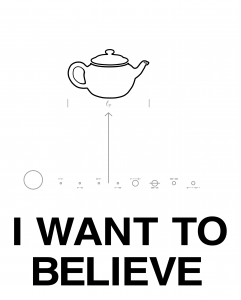History is not predictable, accidents happen and passions can turn reasonable advice into unreasonable results. But perhaps there is a solution, the real solution, the only solution: it is to say that, even in times of disaster, even in times of political religion, there is one human activity that is perhaps more important than politics: the search for Truth.
Raymond Aron, 1952
Car l’histoire n’est pas prévisible, les accidents sont multiples et les passions peuvent transformer les conseils raisonnables en résultats déraisonnables. Il y a peut-être tout de même une solution, la vraie, l’unique solution: c’est de se dire que, même dans les périodes de catastrophes, même dans les périodes de religions politiques, il y a une activité de l’homme qui est peut-être plus importante que la politique: c’est la recherche de la Vérité.
Raymond Aron, “Histoire et conception de l’histoire” in Introduction à la philosophie politique (1952), Editions de Fallois, Le Livre de Poche, Paris, 1997, p. 245
Raymond Aron, “Histoire et conception de l’histoire” in Introduction à la philosophie politique (1952), Editions de Fallois, Le Livre de Poche, Paris, 1997, p. 245
